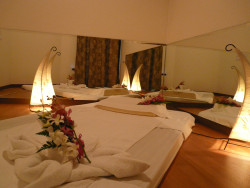
Originally published on metropolis.co.jp on June 2011
HITTING THE ROOF

Phil Couzens
- The TMG discovered that opium poppies were being sold at home improvement centers in Tokyo and 18 other prefectures.
- A tanker truck spilled 18 metric tons of milk after overturning in a single-vehicle accident in Shiga Prefecture late last month. The 32-year-old driver suffered minor injuries, mostly to his ego.
- The education ministry announced that the number of Japanese studying abroad has declined every year since 2004.
- A collection of drawings of coal miners by artist Sakubei Yamamoto (1892-1984) are the first Japanese works that UNESCO will list as a “Memory of the World.”
- Two Japanese climbers were killed—likely by an avalanche—after summiting Mt. McKinley in Alaska.
- Panasonic and eight other companies have banded together to build a “sustainable smart town” in Fujisawa, Kanagawa Prefecture. The village will feature, among other energy-saving devices, “a system for sharing electric vehicles.”
UPWARD AND ONWARD
- A team of scientists at Osaka University has come up with a new way of producing stem cells that may make it easier to use the cells in regenerative medicine.
- It was announced that if the planned free-trade agreement between Japan, China and South Korea takes effect, Japan’s GDP would rise by 0.3 percent.
- A study by the European New Car Assessment Program declared that the Nissan Leaf “proves that electric vehicles can achieve the same safety levels as traditional cars.”
- Mitsubishi Electric launched a communications satellite into orbit from a space center in French Guyana. The satellite, a joint venture between telecom firms in Singapore and Taiwan, will beam services to the Middle East, Central Asia, India and Southeast Asia.
- It will take just 67 minutes to travel between Tokyo and Osaka on JR Tokai’s proposed maglev train line. Construction is due to begin in fiscal 2014.
- Headline of the Week: “Potatoes May be More Dangerous than Other Vegetables” (via Asahi.com).
- The government said that hospitals, nursing homes, semiconductor factories and railways will be exempt from the 15 percent power-reduction order that’s in effect for the rest of Kanto and Tohoku this summer.
- Metaphor alert: “Flip-flopping Government Shoots Self in Foot” (via The Daily Yomiuri).
- The family of a 23-year-old Japanese woman killed in the Christchurch earthquake in February announced that they would fund a hostel for international students about an hour outside the city.
- The Diet passed legislation that will authorize welfare officials to temporarily suspend the parental rights of people who abuse their kids.
TSK, TSK…
- The trade industry blasted Sony for its recent leak of personal data, calling the breach “regrettable” and a “grave incident.” A chastened Sony official replied: “We take the ministry’s advice seriously.”
- At the same time, Sony expects domestic shipments of its flat-screen TVs to hit an all-time high in 2011—about 27 million units.
- The Diet agreed on a proposal to return 1,205 historical documents to South Korea that Japan pilfered during its 1920-1945 colonial rule of the peninsula. The LDP objected to the plan because it “does not call for the return of historical Japanese documents in South Korea.”
- The labor ministry announced that the number of working women in Japan reached a record high of 23.29 million in 2010. In 1985, the figure was 15.84 million.
- During that same period, the proportion of women in management rose from 1.6 percent to 6.2 percent.
- Japan has decided to issue multiple visas to Chinese travelers to Okinawa, so long as the tourists are “economically reliable.” The visas allow unlimited trips to Japan’s southernmost prefecture.
- Thanks to a growing number of cellphone users, the communications ministry has authorized new phone numbers to start with the digits 070, joining 080 and 090.
- Among the items that Japanese consumers will be able to enjoy more of thanks to a new free-trade agreement with Peru are “pork, poultry, squid, asparagus and corn, and resources such as copper and zinc.”
- A man wielding what appeared to be a fruit knife entered a post office in Tochigi and robbed it of ¥40 million.
- A 71-year-old Tokyo man was accused of involvement in the case of Yutaka Kume, who was abducted by North Korean agents from Ishikawa Prefecture in September 1977.
- The Self-Defense Forces opened Japan’s first “full-fledged” foreign military base, an outpost in Djibouti that is intended to help anti-piracy efforts off the coast of Somalia.
- The Le Corbusier-designed National Museum of Western Art in Tokyo got the thumbs-down from UNESCO for listing as a World Heritage site.
- For the third year in a row, Suntory was given top prize at the Dentsu Advertising Awards. Tokyo Gas won in the TV ads division, while publisher Takarajimasha won for newspaper advertising.
- A newswire survey revealed that 74.5 percent of Japanese people have been making an effort to save electricity since the March 11 earthquake and tsunami. The other 25.5 percent are assholes.
- Hiroshi Mikitani, the dot-com billionaire and president of Rakuten, said he is mulling whether to withdraw from the powerful Japan Business Federation because of the group’s “negative” attitude toward reforms in the power industry.
- The end of an era: Japan’s sole remaining Airbus A300-600R made its final journey, on a JAL round-trip flight between Tokyo and Aomori late last month.
- TDK unveiled what it is describing as the world’s first “see-through organic electroluminescent display.” Overseas cellphone companies are already lining up for orders.
- Bottom Story of the Week: “New York Painter Draws Portraits of Evacuees” (via The Asahi Shimbun).
Compiled from reports by AP, Japan Today, The Japan Times, The International Herald Tribune, The Asahi Shimbun, The Mainichi Daily News, The Wall Street Journal, Daily Yomiuri, AFP, Reuters, Kyodo







